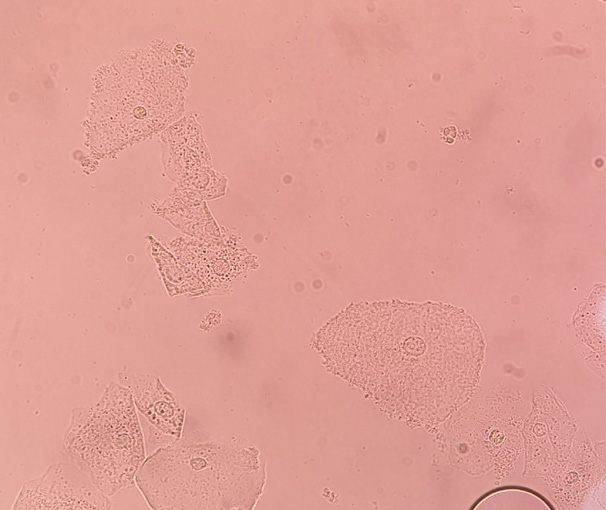Effect of On-line vs On-site Class on Medical Students’ Competency in Vaginal Wet Mount
Main Article Content
Abstract
Objective: To compare the sixth-year medical students’ competency in performing “vaginal wet mount” between those who learned the “vaginal wet mount” workshop when being the fourth-year students by on-line and by on-site classes.
Materials and Methods: The retrospective cohort study was conducted at the Siriraj Female STD Clinic during November 2022- March 2023. The eligibility criteria were sixth-year medical students, having no training relating “vaginal wet mount” in prior two weeks and agreeing to participate in the study. The whole process took 20 minutes for each participant. After signing the informed consent, the participants performed vaginal wet mount. The study team provided a tube of vaginal discharge diluted with normal saline solution. The outcome measures included the complete steps of vaginal wet mount, time taken and the accurate diagnosis. All participants were informed that this study did not affect their study grade; and, during the study, they were allowed to access to any information on the internet.
Results: Of 96 participants, the average age was 23. The number of male students was slightly higher. The duration since the workshop was around 21 months. Thirteen participants (13.5%) had on-line class. Half of the participants in both on-line and on-site groups reported the correct diagnosis of vaginal wet mount (online 46.2%, onsite 51.8%). Those in on-line group could show greater number of correct steps but the on-site ones could better demonstrate the clue cells.
Conclusion: After learning the workshop “vaginal wet mount” for 21 months, half of the sixth-year medical students retain the competency of this diagnostic method. There is no difference between the on-line group and the on-site group when internet-based information is freely accessible.
Article Details

This work is licensed under a Creative Commons Attribution-NonCommercial-NoDerivatives 4.0 International License.
References
Liu C, Lin H. The impact of COVID-19 on medical education: Experience from one medical university in Taiwan. Journal of the Formosan Medical Association. 2021;120:1782-4.
Papapanou M, Routsi E, Tsamakis K, Fotis L, Marinos G, Lidoriki I, et al. Medical education challenges and innovations during COVID-19 pandemic. Postgrad Med J. 2022;98:321-7.
Walters M, Alonge T, Zeller M. Impact of COVID-19 on medical education: perspectives from students. Academic Medicine. 2022;97(35):3S.
Hameed T, Husain M, Kumar S, Singh C, Khan S. Online medical teaching in COVID-19 era: Experience and perception of undergraduate students. Maedica-A Journal of Clinical Medicine. 2020;15(4):440-4.
พรนภา พัฒนวิทยากุล, ธนภรณ์ ตั้งศิลาถาวร, พัทธ์พิชญา พิชญวณิชย์, ศณธร โกมลมณี, กฤตยชญ์ อนวัชพงศ์, วทัญญู เลิศวัชรโสภากุล, et al. ความเครียดระหว่างการเรียนออนไลน์ในช่วงการระบาดของโรคโควิด 19 ของนักศึกษาแพทย์มหาวิทยาลัยขอนแก่น วารสารสุขภาพจิตแห่งประเทศไทย. 2564;29(4):273-85.
Chayachinda C, Baukaew L, Thamkhantho M, Bangpichet A, Sodsee S, Pharkjaksu S. Clue Cell as a Single Diagnostic Tool for Bacterial Vaginosis during Pregnancy. J Med Assoc Thai. 2020;103.
Cherpes T, Meyn L, Krohn M, Lurie J, Hillier S. Association between acquisition of herpes simplex virus type 2 in women and bacterial vaginosis. Clin Infect Dis. 2003;37(3):319-25.
Donders G, van Calsteren K, Bellen G, Reybrouck R, van den Bosch T, Riphagen I, et al. Predictive value for preterm birth of abnormal vaginal flora, bacterial vaginosis and aerobic vaginitis during the first trimester of pregnancy. BJOG. 2009;116(10):1315-24.
Haggerty C, Hillier S, Bass D, Ness R. Evaluation PID, Clinical Health study i. Bacterial vaginosis and anaerobic bacteria are associated with endometritis. Clin Infect Dis. 2004;39(7):990-5.
Atashili J, Poole C, Ndumbe P, Adimora A, Smith J. Bacterial vaginosis and HIV acquisition: a meta-analysis of published studies. AIDS. 2008;22(12):1493-501.
Hillier S, Krohn M, Cassen E, Easterling T, Rabe L, Eschenbach D. The role of bacterial vaginosis and vaginal bacteria in amniotic fluid infection in women in preterm labor with intact fetal membranes. Clin Infect Dis. 1995;20 Suppl 2:S276-8.
Pluempitiwiriyawej C. Comparison of learning achievement between online and onsite learning in Database Design Course. Journal of Information and Learning. 2022;33:45-56
Belay H, Ruairc B, Guerandel A. Workshops: an important element in medical education. BJ Psych Advances. 2019;25:7-13.






